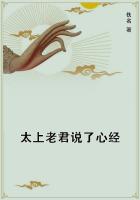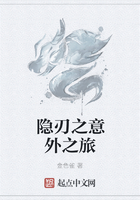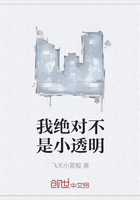"Thackeray called too, separately. I had a long talk with him, and I think he knows me now a little better than he did: but of this I cannot yet be sure; he is a great and strange man. There is quite a furor for his lectures. They are a sort of essays, characterised by his own peculiar originality and power, and delivered with a finished taste and ease, which is felt, but cannot be described. Just before the lecture began, somebody came behind me, leaned over and said, 'Permit me, as a Yorkshireman, to introduce myself.' I turned round--saw a strange, not handsome, face, which puzzled me for half a minute, and then Isaid, 'You are Lord Carlisle.' He nodded and smiled; he talked a few minutes very pleasantly and courteously.
"Afterwards came another man with the same plea, that he was a Yorkshireman, and this turned out to be Mr. Monckton Milnes. Then came Dr. Forbes, whom I was sincerely glad to see. On Friday, Iwent to the Crystal Palace; it is a marvellous, stirring, bewildering sight--a mixture of a genii palace, and a mighty bazaar, but it is not much in my way; I liked the lecture better.
On Saturday I saw the Exhibition at Somerset House; about half a dozen of the pictures are good and interesting, the rest of little worth. Sunday--yesterday--was a day to be marked with a white stone; through most of the day I was very happy, without being tired or over-excited. In the afternoon, I went to hear D'Aubigne, the great Protestant French preacher; it was pleasant--half sweet, half sad--and strangely suggestive to hear the French language once more. For health, I have so far got on very fairly, considering that I came here far from well."The lady, who accompanied Miss Bronte to the lecture at Thackeray's alluded to, says that, soon after they had taken their places, she was aware that he was pointing out her companion to several of his friends, but she hoped that Miss Bronte herself would not perceive it. After some time, however, during which many heads had been turned round, and many glasses put up, in order to look at the author of "Jane Eyre", Miss Bronte said, "I am afraid Mr. Thackeray has been playing me a trick;" but she soon became too much absorbed in the lecture to notice the attention which was being paid to her, except when it was directly offered, as in the case of Lord Carlisle and Mr. Monckton Milnes. When the lecture was ended, Mr. Thackeray came down from the platform, and ****** his way towards her, asked her for her opinion. This she mentioned to me not many days afterwards, adding remarks almost identical with those which Isubsequently read in 'Villette,' where a similar action on the part of M. Paul Emanuel is related.
"As our party left the Hall, he stood at the entrance; he saw and knew me, and lifted his hat; he offered his hand in passing, and uttered the words 'Qu'en dites-vous?'--question eminently characteristic, and reminding me, even in this his moment of triumph, of that inquisitive restlessness, that absence of what Iconsidered desirable self-control, which were amongst his faults.
He should not have cared just then to ask what I thought, or what anybody thought; but he DID care, and he was too natural to conceal, too impulsive to repress his wish. Well! if I blamed his over-eagerness, I liked his *****te. I would have praised him; Ihad plenty of praise in my heart; but alas I no words on my lips.
Who HAS words at the right moment? I stammered some lame expressions; but was truly glad when other people, coming up with profuse congratulations, covered my deficiency by their redundancy."As they were preparing to leave the room, her companion saw with dismay that many of the audience were forming themselves into two lines, on each side of the aisle down which they had to pass before reaching the door. Aware that any delay would only make the ordeal more trying, her friend took Miss Bronte's arm in hers, and they went along the avenue of eager and admiring faces.
During this passage through the "cream of society," Miss Bronte's hand trembled to such a degree, that her companion feared lest she should turn faint and be unable to proceed; and she dared not express her sympathy or try to give her strength by any touch or word, lest it might bring on the crisis she dreaded.
Surely, such thoughtless manifestation of curiosity is a blot on the scutcheon of true politeness! The rest of the account of this, her longest visit to London, shall be told in her own words.
"I sit down to write to you this morning in an inexpressibly flat state; having spent the whole of yesterday and the day before in a gradually increasing headache, which grew at last rampant and violent, ended with excessive sickness, and this morning I am quite weak and washy. I hoped to leave my headaches behind me at Haworth; but it seems I brought them carefully packed in my trunk, and very much have they been in my way since I came. . . .















